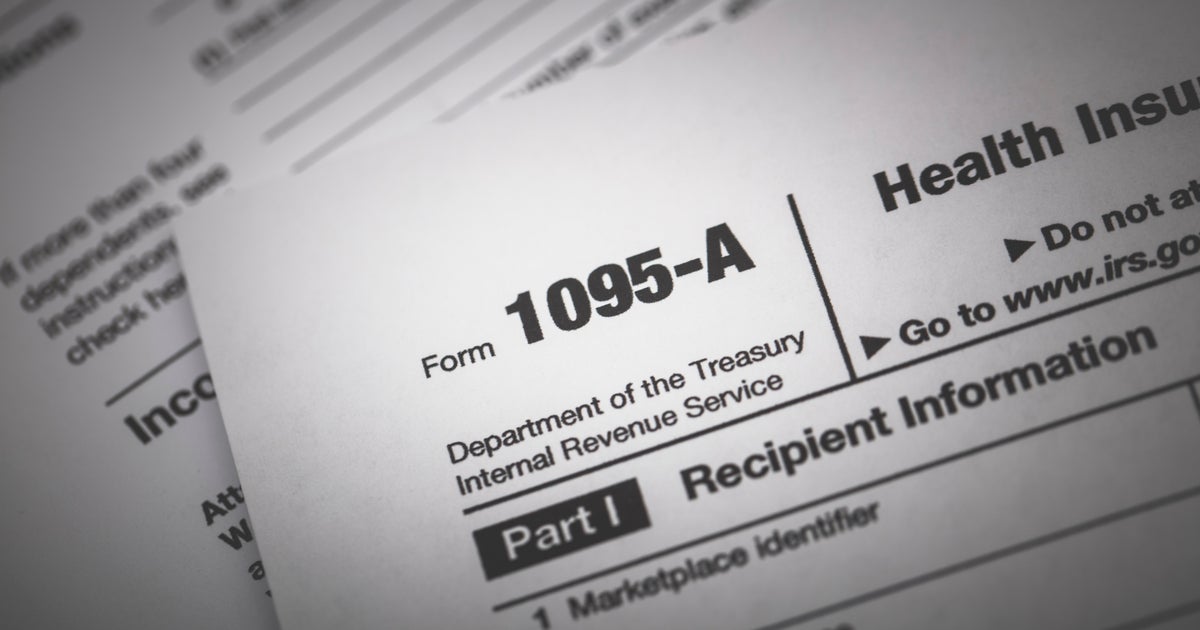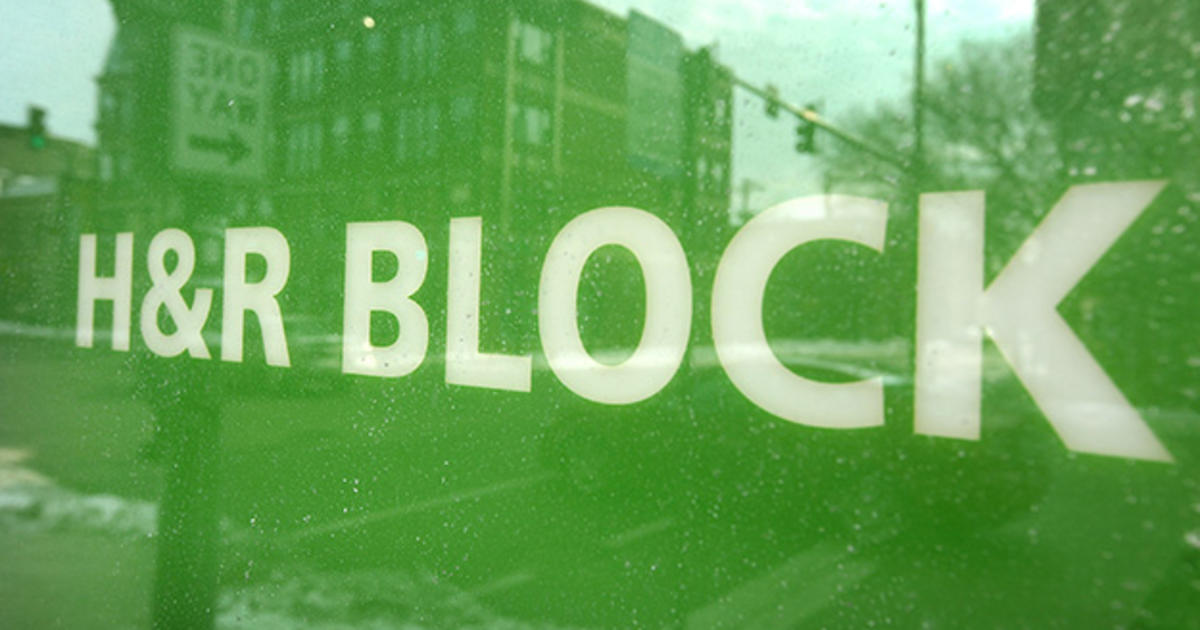Why some Americans may get a smaller tax refund this year
Tax season is officially underway, with the IRS on Monday starting to accept and process people's 2022 returns. Yet while millions of Americans will eagerly await their refund, experts say some people may receive a smaller check than usual.
The biggest issue that could impact tax refunds is the enhanced Child Tax Credit, tax specialists note. The IRS hasn't yet said when it will start accepting tax returns, but typically it opens for new filings toward the end of January.
People receive tax refunds if they've paid more to the IRS throughout the year than they owe. The tax agency then cuts a check for the difference.
- Want your tax refund ASAP? Here are 5 pitfalls that can delay your check.
- Why some Americans may get a smaller tax refund this year
- How to file your taxes for free
- Americans may get a tax refund shock this year
Some taxpayers can also claim tax credits, which are a dollar-for-dollar reduction in the amount you'll owe to the IRS. These credits are typically aimed at specific groups of taxpayers, such as parents, students or low-income workers.
That's where the Child Tax Credit comes in.
Under President Joe Biden's American Rescue Plan, the Child Tax Credit (CTC) was expanded from $2,000 per child to $3,600 for each kid under age 6 and $3,000 for those between 6 to 17. But despite the bigger tax credit, the program could provide a hit to some parents' tax refunds when they file their returns.
That's because half of the expanded CTC was paid out in advance through monthly checks from July 2021 through December 2021 — and parents will claim the other half of the tax credit on their tax returns before the filing deadline of April 18, 2022. (IRS offices will be closed this year on the traditional tax deadline of April 15 for Emancipation Day, pushing the filing deadline to the 18th this year.)
In other words, instead of getting a tax credit for $2,000 as in prior years for their children, parents will claim $1,500 or $1,800 per kid, depending on the age of their child.
Take a family with two children, ages 8 and 10: When the parents file, they'll claim a tax credit of $3,000 for the two children (representing one-half of the combined $6,000 in tax credits offered for two children through the expanded CTC). Yet that actually means a decline of $1,000 in tax credits compared with the prior tax year, when they would have claimed $4,000 for their two children. The result could be a smaller tax refund in 2022, tax experts say.
"A lot of people will get their refunds and they won't get as much as anticipated," noted Toby Mathis, founding partner of Anderson Law Group and an expert on taxation. "The people it'll hurt are those who are anticipating the full amount, unaware that the money they got [in 2021] was a prepayment of the tax credit."
To be sure, some parents were aware of this issue and opted out of the monthly prepayments because they preferred to get a bigger refund, said Mark Steber, chief tax information officer at Jackson Hewitt.
"Some people want the full benefit of the tax credit when they file, or they weren't sure if they qualified," Steber explained. "A lot of people took advantage" of the IRS' portal to opt out of the advanced payments.
At the same time, there are some parents and taxpayers who could end up with bigger tax refunds.
Below are some of the scenarios where people could get bigger or smaller tax refunds this year due to changes in the tax code in 2021. There's just one big caveat: Every tax situation is unique given that tax refunds depend on a number of factors such as income tax brackets as well as tax credits and deductions such as retirement contributions.
Smaller refund: The CTC impact
For the reason noted above, some parents may get a smaller tax credit for the CTC when they file their tax returns this year, therefore reducing their typical tax refund.
But there are some other issues with the CTC that could also eat away at a taxpayer's refund, tax experts said. Among them is people who received the enhanced CTC payments for a child but didn't qualify for them.
"A lot of people could be in for a rude awakening this year," said Christian Cyr, a CPA and president and chief investment officer at Cyr Financial.
One of his clients had a child who turned 18 this past year, but because the IRS based CTC eligibility on 2020 returns, it appeared that the child was 17. "The IRS isn't smart enough to realize or didn't look into the date of birth, so they started dishing out $1,500 to my client through the advanced tax payments," Cyr said. "He said, 'What does that mean?'"
The answer, Cyr said, is that the parent will have to repay the advanced CTC payments. In that case, the IRS would reduce the amount of a taxpayer's refund to reclaim the overpayment.
Likewise, some parents who are divorced or share custody of a child may be on the hook for repayment if it wasn't their year to claim the child as a dependent. The parent who claims the child as a dependent for 2021 will receive the CTC instead, and if the other parent mistakenly received the checks in 2021, they'll need to repay the money.
Bigger refund: Parents with a child born in 2021
Some people may be likely to see a bigger refund in early 2022, including families that welcomed a child into their family in 2021, tax experts said.
That's because the IRS based its eligibility for the advanced CTC payments, as well as the third stimulus check (worth $1,400 for each eligible adult and child), on either 2019 or 2020 tax returns. The IRS, therefore, wouldn't have known about babies born in 2021 and wouldn't have directed the advance CTC payments for those children.
Families with babies or children born, adopted or fostered in 2021 will be able to claim the full enhanced CTC credit on their 2021 tax returns, giving them a credit of $3,600 per child. On top of that, they should also be able to receive $1,400 in a stimulus check for the child, Steber of Jackson Hewitt said. Together, these moves could boost a family's tax refund by $5,000 per child.
Bigger refund: Working parents with kids in daycare
One big change in the tax code that isn't as well known as the Child Tax Credit is the Child and Dependent Care Credit, which was expanded through the American Rescue Plan.
Previously, parents who paid for someone to care for their child while they worked or looked for work could claim a tax credit of up to $3,000 per dependent. But the American Rescue Plan has bumped that credit up to $8,000 per child — with a maximum of $16,000 for two dependents.
There are some limitations. The child must be under 13 or a person who isn't mentally or physically capable of caring for themselves, lives with the taxpayer for more than half the year and is a dependent. In addition, a parent — or both parents, if they are filing jointly — must have earned some income in 2021 to claim the tax credit.
Not all child care costs are considered eligible by the IRS, which says that overnight camps and private schools aren't covered by the tax credit. But paying a relative to care for a child while you or your spouse works is considered an eligible expense — as long as that relative isn't also a dependent (like an older sibling).
For qualifying families, the tax credit will provide a dollar-for-dollar reduction in their tax liability. It's also refundable, which means that even if the tax credit exceeds your federal income taxes, you'll get the extra amount in your tax refund.



